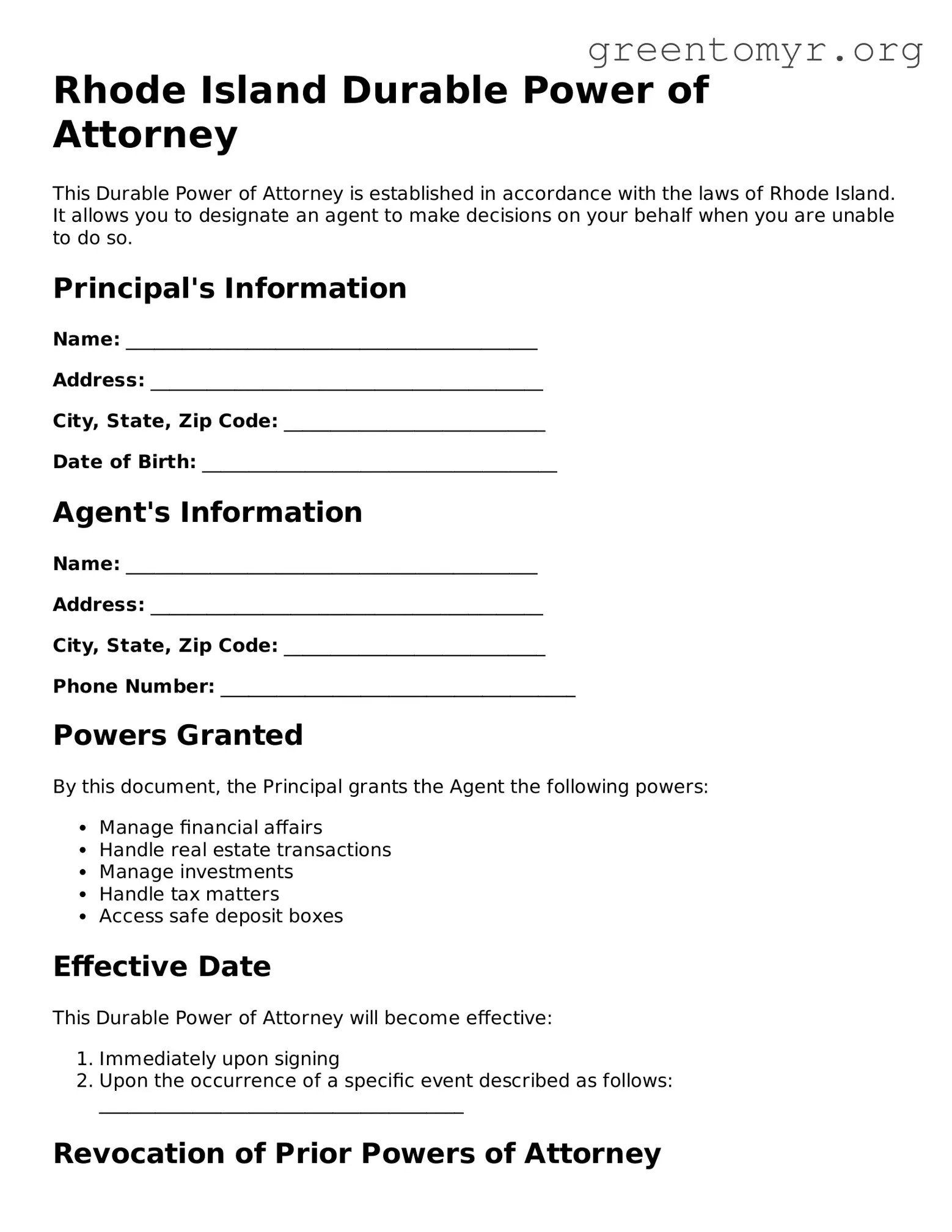Rhode Island Durable Power of Attorney
This Durable Power of Attorney is established in accordance with the laws of Rhode Island. It allows you to designate an agent to make decisions on your behalf when you are unable to do so.
Principal's Information
Name: ____________________________________________
Address: __________________________________________
City, State, Zip Code: ____________________________
Date of Birth: ______________________________________
Agent's Information
Name: ____________________________________________
Address: __________________________________________
City, State, Zip Code: ____________________________
Phone Number: ______________________________________
Powers Granted
By this document, the Principal grants the Agent the following powers:
- Manage financial affairs
- Handle real estate transactions
- Manage investments
- Handle tax matters
- Access safe deposit boxes
Effective Date
This Durable Power of Attorney will become effective:
- Immediately upon signing
- Upon the occurrence of a specific event described as follows: _______________________________________
Revocation of Prior Powers of Attorney
All prior Power of Attorney documents are hereby revoked.
Signature
Principal's Signature: __________________________________
Date: _________________________________________________
Witnesses
This document must be signed in the presence of two witnesses:
- Witness 1 Name: ___________________________________
- Witness 1 Signature: _____________________________
- Date: _________________________________________
- Witness 2 Name: ___________________________________
- Witness 2 Signature: _____________________________
- Date: _________________________________________
Notarization
Notarization is recommended to enhance the document's validity.
Notary Public Signature: ____________________________
Date: _____________________________________________
